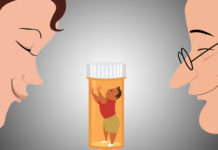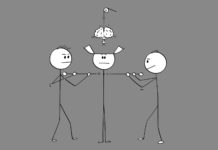Radical Acts of Community Healing and Self-Love
Self-love became a radical and revolutionary act of activism against this system. At its foundation was the rejection of “disease” as a label to define the uniqueness of my mind.
Mental Health Survival Kit, Chapter 3: Psychotherapy: The Human Approach to Emotional Pain
Through the process of healing—whether assisted by psychotherapy or not—we learn something important that can be useful if we get in trouble again.
We Do Not Have Everything We Need
It’s healthier to figure out how to be with each other and care for each other than continue to engage in the destructive lie that we already have everything we need "inside ourselves."
Mental Health Survival Kit, Chapter 2: Is Psychiatry Evidence Based? (Part 9)
On Denmark's declining use of depression pills for children, and why one should never stop fighting to change psychiatry and society's reliance on it.
How Can Mental Health Research Become More Relevant to Those it is Meant to...
As a psychiatrist, my bread-and-butter is the kind of private practice in which my patient’s concerns become my own and it is those concerns that drive our work together, my teaching, and my research.
Nutrition Is the Foundation of Resilience
Recent studies show that we are not consuming as healthy a diet as our ancestors did. Would that matter to our brain health? Yes!
Mental Health Survival Kit, Chapter 2: Is Psychiatry Evidence Based? (Part 8)
On psychiatry’s resistance to admitting to withdrawal effects, as well as the way doctors and scientists are treated when they critique the establishment.
Access Denied: Victims of Prescribed Harm Are Abandoned by Psychiatry
Harmed patients are frequently unable to control the narrative of their own treatment and are subject to gaslighting, dangerous medical advice, and termination.
Mental Health Survival Kit, Chapter 2: Is Psychiatry Evidence Based? (Part 7)
Many patients end up on terribly harmful drug cocktails they might never escape from. Although it’s hard to believe, it’s getting worse.
Philosophy & Madness: A Discussion with Wouter Kusters
Wouter underwent two experiences of what is commonly called "psychosis," which he explores and explains through the lenses of philosophy, spirituality, and mysticism.
Mental Health Survival Kit, Chapter 2: Is Psychiatry Evidence Based? (Part 6)
Schools and hospitals have become dangerous places for children and adolescents. They should stimulate children, not pacify them with speed on prescription.
Interview: Is Forced Treatment Deterring Youth from Seeking Mental Health Care?
Researcher Nev Jones, Ph.D., talks about her study of youth hospitalized against their will, and how their experiences affected their attitudes about mental health treatment and providers.
Mental Health at the End of the World
The abolition of individualism has got to be at the center of any “alternative” mental-health movement/theory/philosophy. Otherwise, it’s not “alternative.”
Questions About Forced ECT: A Letter for Minnesota Governor Tim Walz
If Minnesota is going to mandate ECT for people like Charles Helmer, there are at least 20 questions they need to consider before proceeding.
Mental Health Survival Kit, Chapter 2: Is Psychiatry Evidence Based? (Part 5)
The psychiatrists have fought really hard to hide the terrible truth that depression pills double the risk of suicide, not only in children but also in adults.
Overprescribing Madness
Slick salesmanship, dishonest and incompetent medical practice (overlooked by timid regulators) and cultural, commercial, and political drivers now see Australians hooked on a cycle of over-diagnosis and over-medication.
Psycho-Bizarreness Theory: A Rational, Anti-Psychiatric Theory of Madness
Contrary to the traditional view, Psycho-Bizarreness Theory sees madness as a rational coping mechanism which individuals adopt out of expediency.
Mental Health Survival Kit, Chapter 2: Is Psychiatry Evidence Based? (Part 4)
It requires extraordinary mental gymnastics by psychiatrists to conclude that neuroleptics, which cause obesity, metabolic dysfunction, diabetes, tardive dyskinesia, lethal cardiac arrhythmias, and so on, protect against death.
An American History of Addiction, Part 6: The Reagan Reaction
Kevin Gallagher addresses the Reagan era and the "crack" epidemic of the 1980s in this continuing series about the USA and addiction.
Beyond Benzos: Jordan B. Peterson’s Trip to Hell and Back
I am thankful "Beyond Order" exists; if only because it serves as a cautionary tale for anyone looking to modify their mood using psychiatry’s plethora of pills.
A Difference That Can Make a Difference: Mental Distress as a Call of Being
Could it be helpful to view mental distress by exploring Rollo May's concept of "being" rather than reducing humans to mere dysfunctional cogs in the machine of productivity?
Mental Health Survival Kit, Chapter 2: Is Psychiatry Evidence Based? (Part 3)
Virtually every single placebo-controlled drug trial in psychiatry is flawed, systematic reviews of trials are also flawed, and guidelines are flawed. Even the drug approval process is flawed.
Online Exhibition: Art-Making During the Pandemic
The online exhibition "Creativity and COVID: Art-Making During the Pandemic" features nearly 100 artists with lived experience with mental distress who shared with us their art-making process and how it helped them survive the global pandemic.
Federal Mental Health Agencies: Remember Ivory!
Ivory McCuen needed warmth and a home the night she died. Court-ordered psychiatric drugs deliver neither warmth nor a home. Federal agencies need to consider people with lived experience.
How Psychiatry Turned General Difficulties in Adaptation into “Real Illnesses Just Like Diabetes”
Though many psychiatrists have abandoned the "chemical imbalance" concept, they now promote the use of a pre-scientific notion that the only criteria for defining disease is the presence of distress or impairment.

































